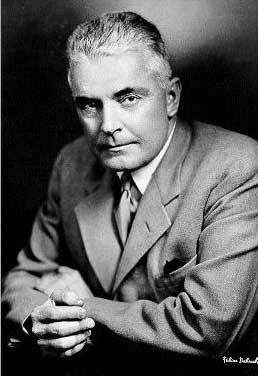|
John Broadus Watson was born
in 1878 which was a time when psychology was dominated by Structuralism. Structuralism was created by a follower of Wilhelm
Wundt and his methods, Edward Titchener. Structuralism was to be created in the likeness of Wundtian psychology but was quite
different. Titchener’s main goal was to focus on the mental elements (similar to Wundt) and how they link together through
the process of association. John Watson had no concern with structuralism because he was too young to understand any school
of psychology at the time. As Watson grew older his first stop was at Furman
University where he was beginning to fulfill his mother’s wishes for him to become a clergyman. Watson’s mother died
during the year he was receiving his Master’s degree and this released him from his vow to become a clergyman. While
at Furman J.B. Watson had intentions on continuing his education at a theological seminary, but he chose University of Chicago after his mother died
because the University of Chicago was where he was going to pursue his career in philosophy under the great John Dewey (a renowned philosopher at the
time). Unfortunately, he did not understand Dewey’s lectures, so Watson found interest in psychology through the work
of James Angell (a functional psychologist), he also studied biology and physiology with Jacques Loeb, who introduced to him
to the concept of mechanism. Watson went on to teach at several universities including the University of Chicago and pursue a career
in advertising.
John Watson's Behaviorism
Watson's behaviorism focused primarily on how people reacted
to different situations and environments, rather than the mental state of that person. Watson’s behaviorism was mechanistic
building upon the theory that we are no more than conditioning and reflexes. This theory was much different than what B.F.
Skinner found when testing Watson’s theories in the laboratory. Skinner argued that
“people respond to their environment, but they also operate on the environment
to produce certain consequences.” Watson believed that psychology should be completely objective only evidence that
is important are the body’s muscular movements and glandular secretions.
The Little Albert Study
Watson did experiment with conditioning
in his landmark experiment with an infant boy named Albert. Though the story of Little Albert has been distorted over the
many years, the concept still remains that emotional responses can be conditioned. The process involved a sharp noise whenever
a white rat was presented so that little Albert developed a dislike or fear for the white rat due to the noise. Watson’s
findings showed that Albert was not just afraid of the rat but during the trials Albert was exposed to other items and developed
a fear for the items also. The conclusion was that Albert’s fear transferred to other items and he was never desensitized.
|
 |
|

"Give me a dozen healthy infants, well-formed, and my own specified world to bring them up and I'll guarantee to
take any one at random and train him to become any type of specialist I might select--doctor, lawyer, merchant-chief, and
yes, even beggarman and thief, regardless of his talents, penchants, tendencies, abilities, vocations, and race of his ancestors."
(1930)
"Psychology as the behaviorist views it is a purely objective experimental branch of natural science. Its theoretical
goal is the prediction and control of behavior. Introspection forms no essential part of its methods, nor is the scientific
value of its data dependent upon the readiness with which they lend themselves to interpretation in terms of consciousness.
The behaviorist, in his efforts to get a unitary scheme of animal response, recognizes no dividing line between man and brute.
The behavior of man, with all of its refinement and complexity, forms only a part of the behaviorist's total scheme of investigation."
|
 |
|
|
 |
|
|
|

